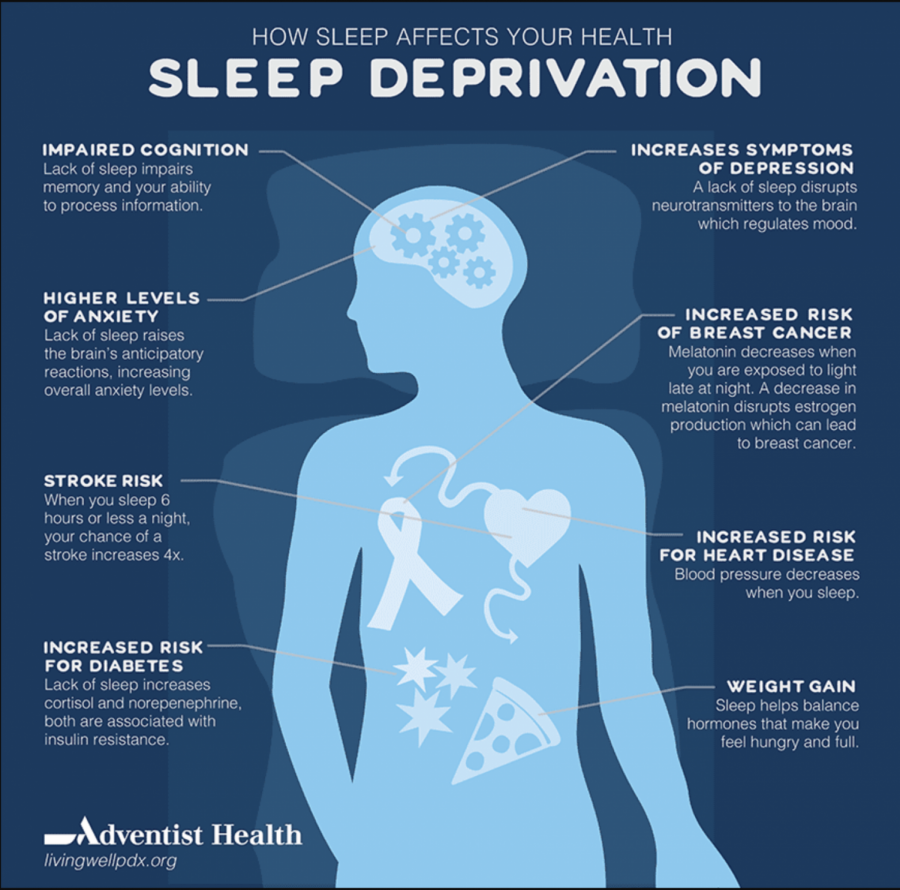Point Counterpoint: Should We Move the Opening Time of School Back?
A: Yes, it is way too early for students to succeed.
Many people would usually side with this argument, mainly due to their love of sleep. But, It has been scientifically proven by many different scientists that the amount of sleep that students are lacking on average because of early start times is definitely significant. According to SleepFoundation.org, “key changes in sleep patterns and needs during puberty can contribute to excessive sleepiness in adolescents, which can impair daytime functioning.” If the lack of sleep is supposed to be detrimental to getting things done, school performances must be hurt because of this early start time. The difference between the number of sleep students should be getting and then what they are actually getting is drastic: “adolescents are recommended to get nine hours of sleep a night, but a number of external factors – including interrupted sleep from academic responsibilities and light-emitting devices – has degraded sleep quality and length so that students are only getting about 6 hours and 50 minutes of sleep per night” (neatoday.org) This provides ample evidence that can point to a decision that would push the start time to be later. Annie Shafran, a sophomore at Mendham, made a particularly insightful point about the correlation between sleep and mental health: “I feel happier and more relaxed after a solid 9 hours of sleep.” Many students and faculty have expressed a similar point of view that they would be much happier if they were able to sleep in a little more, even if it would be as little as 30 minutes. Overall, it would be a universal joy for the students so they can try to get a little more sleep.
A: No, it would be too much trouble for very little benefit.
There are many logistical obstacles that a school would encounter when they would want to move the start time for school later. One main problem that would have to be solved would be the fact that if school start times were moved back 30 minutes, then all after-school activities would be moved back 30 minutes as well. Many students struggle with getting home very late, for example, junior Lindsay Kupka. She states that “depending on the season and schedule, she will get home as late as 10:30.”If we installed this new system, would she instead be getting home at 11:00? Additionally, another conflict that would occur would be the bussing schedule that might be independent to the school.

The morning schedules of so many parties would be changed, including parents that might need to commute to work, but their child is still home waiting for the bus or waiting to get picked up to school. Also, something to consider would be if this change would actually be helpful for the students to go to bed earlier and get more sleep. There is a definite possibility that this could just enable a student body to stay up later on our phones for 30 minutes more instead of getting the sleep that they are fighting so aggressively for. A parent from the MHS community said that she “knows my son and that he will just stay up late and not use it to his advantage, so it would actually do very little.” Finally, moving something as large-scale as the daily schedule that has been the same for years would be a monumental shift, requiring effort from many different groups of people to make this change.

Daniel Hellriegel is an eleventh grader at West Morris Mendham High School. He is the Student Director of Mendham Players, a Peer Leader, and now a staff...






